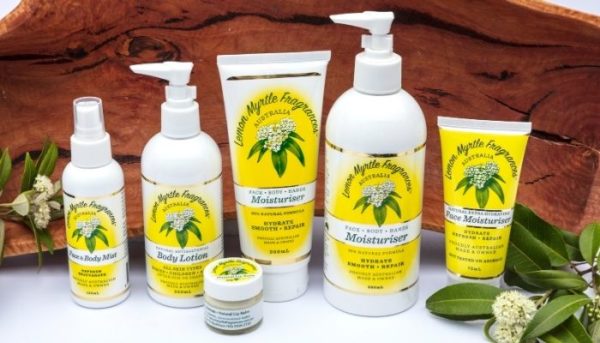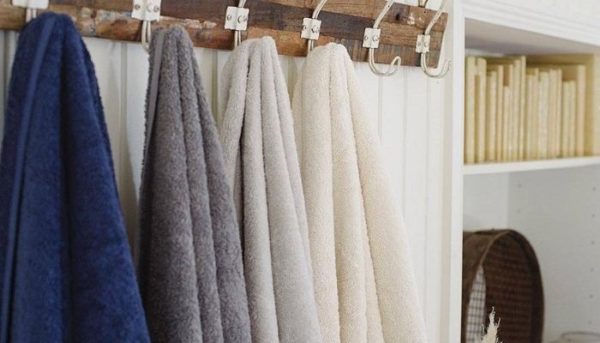Why Eco-Friendly Products are Hitting Home
With nine out of 10 Australians saying they’re concerned about the environment, eco-friendly household products have natural appeal. But is taking care of the planet the only thing driving their popularity? And in a COVID-safe world, which ‘clean and green’ products are most in demand? Here’s what you need to know.
Thanks to the coronavirus pandemic, empty supermarket shelves became a ‘thing’ in 2020. While the toilet-paper aisle was hardest hit, certain household cleaning products were also affected, causing customer purchasing limits to be applied to some items.
Rewind to the 1940s and it was a similar story, albeit for different reasons. The world’s first commercial laundry detergent, Tide, had hit the shelves and was so popular it had to be rationed. What was so good about it? It contained synthetic surfactants, chemicals that gave the detergent its cleaning power. These days, though, they’re the very same ones many Australians are concerned about putting down drains due to the harm they can inflict on aquatic life.
In fact, one in two Australians now actively avoid buying household cleaners that contain toxic chemicals and 80 per cent of consumers think manufacturers should be more transparent about the ingredients they’re using. No wonder eco-friendly choices are making headway.
“It’s our experience that more people are conscious of both what they’re putting on their skin and into the environment via their drains at home,” says Kerry de Pagter from Lemon Myrtle Fragrances, a brand that produces personal care and home cleaning products made with 100 per cent Australian lemon myrtle essential oil. “People are becoming increasingly aware of what harmful, synthetic chemicals can do to waterways.”

Lemon Myrtle Fragrances
And they’re right to be concerned. Despite all waste water in Australia being treated before being released into the environment, 70 different chemicals still regularly find their way into our waterways. Some of them are known as ‘chemicals of concern’ due to their toxicity.
A similar story explains the recent appearance and growth in popularity of eco-friendly kitchen products, such as reusable food covers. With 90 per cent of Australian households historically purchasing single-use plastic wrap, all of which winds up in landfill, it makes sense that eco-conscious consumers are embracing alternative options.
Accentuating the Positive
The appeal of eco-friendly household products doesn’t only hinge on being an alternative to the non-eco-friendly competition. And it’s not just about eliminating the negative by preventing harmful chemicals and other pollutants from entering the environment.
Take Aagan’s range of bedding and bath towels. Made from 100 per cent GOTS (Global Organic Textile Standard) certified cotton, they are grown without the use of harmful synthetic pesticides. But the brand’s eco-friendly credentials stretch even further than this. “Organic cotton uses less water than regular cotton to grow,” says Aagan’s Sunil Maharaj. “Plus, once our cotton is harvested in India, we let our farms stay idle for a few years so the earth can rejuvenate the soil content.
“I also think that, increasingly, consumers want to invest in products for use in their homes that are less ‘disposable’ and much more long-lasting. As well as being breathable and inexpensive, certified organic cotton is incredibly durable, outlasting blended cottons, such as Egyptian or Turkish cotton. Because of this, our sheets and towels last for years.”
Taking it Personally
It’s not only concern for the environment that’s driving the popularity of natural household products. Australians are becoming more invested in and worried about their health and wellbeing. “Australians are very conscious about living a healthy lifestyle, so choosing organic, eco-friendly products that are safe around the house is a good fit,” says Maharaj.
The growing number of people claiming to have sensitive skin may be another explanation. “Natural, breathable materials, like cotton, are pleasing to wear, use and sleep in for everyone, but they have particular appeal for people with skin conditions and allergies, who are really conscious of avoiding things that may aggravate their skin,” says Maharaj.

Aagan Organic Cotton Towels
Fragrance allergies could be another reason synthetic, chemical-free household products are gaining ground. Allergic contact dermatitis is a relatively common condition triggered when the user comes into contact with a problematic fragrance.
The trouble is fragrances aren’t just limited to perfumes and cosmetics. They’re routinely added to everything from laundry detergents to air fresheners and cleaning products. In fact, the American Contact Dermatitis Society declared ‘fragrance’ as the contact allergen of the year in 2007.
Lemon Myrtle Fragrances has a natural air freshener in its range. “It’s not a synthetic smell,” says de Pagter. “It’s 100 per cent pure lemon myrtle essential oil, which tends to be less of an issue for people who have fragrance allergies.”
The company has also added another product this year, largely in response to the pandemic – a surface and hand sanitiser made with organic sugar-cane alcohol and lemon myrtle essential oil. It’s key when you consider that, according to the Eczema Association of Australia, certain hand sanitiser ingredients like fragrance and preservatives can cause skin reactions.
“For people whose skin doesn’t react well to traditional sanitisers, a more natural product may suit them much better,” says de Pagter.
Performance makes Perfect
Claiming to be eco-friendly is one thing, but for real traction it pays when a product can prove it. This is to avoid them being lumped together with ‘greenwashing brands’ – those that market themselves as being green, but in reality, aren’t.
Products should also perform at least as well as less-environmentally friendly alternatives, too. “Our hand sanitiser didn’t only have to align with our brand’s values,” says de Pagter, “it obviously had to be highly effective, too. It kills 99.9 per cent of germs.”

Maharaj agrees eco-conscious consumers demand products that perform. “Absolutely – and I think full transparency is key, too. No one gets a GOTS certification unless all processes meet the requirements of ethical farming. And Aagan didn’t win two Australian Enterprise awards without having impeccable proof of the ethical and eco-friendly practises involved in every stage of making our products.”
To avoid tainting your brand with greenwashing, in lieu of being able to achieve a relevant certification, asking this handful of questions is a good place to start:
- If your product makes some sort of claim, can you prove it to be true 100 per cent of the time?
- Are those claims backed up by solid evidence?
- Even if the claims are true, do they really matter for the good of the planet?
- Likewise, if your product avoids something problematic, is it a genuinely important problem?
- Are there any other negative issues associated with your product that are being overlooked?
At a time Australians are more committed than ever to supporting sustainable, eco-friendly products with their spending dollars, but are also becoming increasingly ‘green smart’, it’s household products that tick all the boxes that will score a home run.
Find more eco-friendly home products on the Naturally Product Directory.
Have a range of eco-friendly home and living products? Connect with key buyers and sign up to the Directory here.
-
Enquire!
- Book a stand
